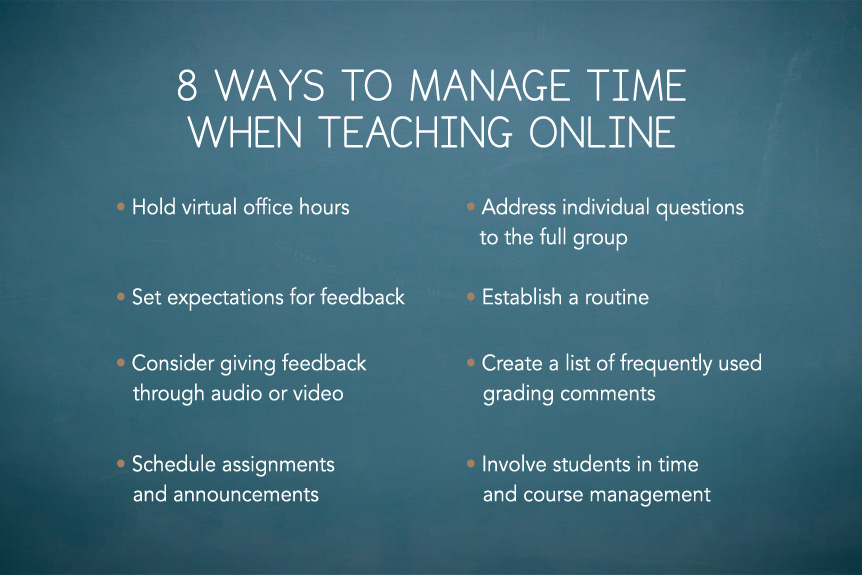
Picture this: the start of a new school year, and you’re excited to inspire, educate, and make a positive impact on the lives of your students. But as the days go by, you find yourself overwhelmed with lesson planning, grading papers, attending meetings, and dealing with unexpected disruptions.
Does this sound familiar? If you’re a teacher, you know that time management is the key to maintaining sanity and achieving success in your profession. Whether you’re a seasoned educator or just starting your teaching journey, honing your time management skills is essential.
In this article, we will discuss the essential time management skills necessary for teaching and how they can enhance your teaching experience. You’ll gain valuable insights and strategies for prioritizing tasks and maximizing productivity, as well as creating a healthy work-life balance that promotes success in and out of the classroom.
Are you prepared to take control of your time and become a more efficient and effective teacher? Let’s dive in!
Time Management Skills Needed for Teaching
Teaching is a demanding profession that requires effective time management skills to ensure students receive the best education. Teachers must prioritize tasks by assigning importance to activities. For instance, tasks such as preparing lesson plans and grading assignments take priority over administrative duties. By structuring their time effectively, teachers can focus on completing essential aspects of their job.
Another crucial time management skill for teachers is goal-setting and establishing deadlines. Teachers should have a clear comprehension of their tasks and set specific goals accordingly. For example, a teacher may aim to finish a certain number of lesson plans within a specific timeframe. By setting deadlines, teachers can maintain focus and evade procrastination.
Teachers need to effectively manage interruptions and distractions. In a classroom, unexpected interruptions like student questions or technical issues often occur. Teachers must efficiently handle these interruptions and get back on track. They also need to minimize distractions like phone notifications or personal tasks during work hours. By managing interruptions and distractions, teachers can maximize productivity and instructional time.
Time management skills are essential for teachers to effectively carry out their responsibilities. By prioritizing tasks, setting goals and deadlines, and managing interruptions and distractions, teachers can use their time wisely and provide a quality education for students.
Overview

Teaching is a demanding profession that requires excellent time management skills. It is crucial for educators to prioritize tasks, plan lessons, and manage deadlines to create a structured and productive learning environment. Time management skills help teachers stay organized, meet student needs, and maintain work-life balance.
To improve time management, teachers can create and follow a personal schedule. This involves setting specific times for planning, grading, and meetings. By allocating time to each task, educators can prevent overwhelm and burnout.
Another aspect of time management for teachers is setting goals and prioritizing tasks. Educators should identify and focus on the most important and urgent tasks, allowing them to make progress on activities like preparing for classes or assessing student work, while still leaving time for other tasks.
Effective time management also involves minimizing distractions and staying focused. This can be achieved by creating a designated workspace, eliminating unnecessary interruptions, and utilizing techniques like the Pomodoro Technique, which involves working in focused, uninterrupted blocks of time followed by short breaks.
Overall, it’s crucial for educators to regularly assess and amend their time management strategies. They can do this by reflecting on what works well and what doesn’t, seeking input from colleagues or mentors, and being open to experimenting with new methods. By constantly refining their time management skills, teachers can create a more efficient and fulfilling work environment.
In summary, effective time management is essential for educators to effectively meet the demands of their profession. By establishing a structured schedule, setting clear goals, reducing distractions, and continually evaluating their strategies, teachers can improve their productivity, effectiveness, and overall well-being.
Key Features or Points
Effective time management is crucial for teachers to create a productive learning environment. Key time management skills for teaching include prioritization and planning.
1. Prioritization: Teachers must prioritize tasks to ensure timely completion. They must identify urgent and important tasks and allocate time accordingly.
2. Planning: Teachers need to plan ahead by creating lesson plans, preparing materials, and organizing activities. This prevents last-minute rushes and maintains a smooth classroom flow.
3. Organization: Teachers must be organized to manage their time effectively, keeping track of deadlines, schedules, and important documents. This can include using digital tools, calendars, or planners to stay organized and avoid stress.
4. Delegation: Delegating tasks is vital for teachers to save time and maximize efficiency. They should identify tasks that can be delegated to other staff or students, like handing out materials or setting up the classroom.
5. Time blocking: Teachers can use time blocking to allocate dedicated time for specific tasks and avoid distractions. By blocking off specific time slots for different activities, teachers can focus on one task at a time and make the most of their limited time.
6. Flexibility: Despite careful planning, unexpected situations can arise in the classroom. Teachers need to adapt and handle unforeseen circumstances by making quick decisions and prioritizing effectively.
Developing and honing time management skills allows teachers to create a more organized, efficient, and balanced teaching experience for themselves and their students.
Practical Tips or Strategies

Managing time effectively is crucial for teachers to ensure they can complete all tasks and responsibilities. Here are some practical tips to enhance time management skills for teaching:
1. Prioritize tasks: Identify important and urgent tasks that need completing. This helps avoid getting overwhelmed.
2. Create a schedule: Set specific time slots for activities like planning lessons, grading assignments, and meetings. A well-structured schedule helps allocate time efficiently.
3. Break tasks into smaller chunks: Breaking down large tasks into smaller, more manageable ones helps teachers stay organized and motivated.
4. Minimize distractions: Identifying and minimizing potential distractions, such as turning off device notifications or creating a quiet workspace, helps teachers remain focused.
5. Delegate tasks: Teachers should delegate tasks to colleagues or students as needed, lightening their workload and freeing up time.
6. Taking breaks: It’s essential for teachers to take regular breaks throughout the day to maintain productivity and prevent burnout. Teachers should schedule short breaks to rest, recharge, and clear their minds.
7. Utilizing technology: Numerous productivity tools are available to help teachers manage their time more effectively. These tools include digital calendars, task management apps, and online collaboration platforms.
By implementing these practical tips and strategies, teachers can enhance their time management skills and improve overall effectiveness in the classroom. It’s important for teachers to find a system that works best for them and adapt as necessary to meet their unique needs and circumstances.
Personal Perspective or Case Study
In my experience as a teacher, time management skills are crucial for a successful learning environment. As a classroom teacher, I plan and deliver lessons, assess student progress, provide feedback, and address individual needs. These tasks require careful planning and organization to ensure teaching is thorough.
One aspect of time management I find helpful is setting clear, achievable goals each day or week. By breaking larger tasks into smaller steps, I can stay focused and on track. For example, I might aim to grade one assignment or plan for a lesson. This helps prioritize my time and stay motivated.
Another aspect of teaching efficiently is the ability to prioritize tasks based on importance and urgency. Tasks like preparing for a parent-teacher conference or addressing students’ academic or behavioral concerns need immediate attention. By identifying and addressing high-priority tasks first, I can ensure nothing essential is neglected.
Effective time management in teaching often requires flexibility and adaptability. Unexpected disruptions can occur at any time, and being able to adjust plans and respond quickly Is essential. This may involve addressing a student’s misunderstanding on the spot, or rearranging the schedule for special events or assemblies. By staying flexible and maintaining a calm and positive attitude, teachers can successfully navigate these challenges while ensuring an efficient and productive learning environment.
The ability to manage time effectively is crucial for teachers to deliver high-quality instruction, meet students’ needs, and maintain a positive learning environment. By setting clear goals, prioritizing tasks, and staying flexible, teachers can make the most of their time and provide students with the best education.
Related Resources
In this article, you have learned about essential time management skills for teaching. Now, let’s recap the key points and consider how you can apply them in your own situation.
First, we discussed the importance of setting clear goals and priorities. As a teacher, you have many responsibilities, so it’s crucial to determine the most important tasks and focus on them. By doing so, you can ensure effective time management and avoid overwhelm.
Next, we explored the benefits of creating and sticking to a schedule. By planning your days or weeks, you can allocate time for all your responsibilities, such as lesson planning, grading, and personal activities. Remember, maintaining a schedule requires discipline and helps maintain a healthy work-life balance.
Firstly, we emphasized the importance of organizing tasks and materials. By keeping your classroom and digital files organized, you’ll save time and prevent stress. Consider using folders, labels, and tools to streamline your workflow.
Additionally, we highlighted setting boundaries and saying no. As a teacher, you may be asked to take on additional tasks, but it’s crucial to prioritize your needs. Learning to say no helps you avoid burnout and maintain work-life balance.
We emphasized the value and importance of self-care and taking breaks. Teaching can be demanding, so prioritize your well-being. Remember to take breaks, engage in enjoyable activities, and make time for relaxation. By taking care of yourself, you’ll have more energy to tackle teaching responsibilities.
Think about how these time management skills can be applied to your own life or situation. Reflect on your practices and consider where improvements can be made. Implementing these strategies can make you a more effective and organized teacher.
Successful time management is a journey, requiring consistent effort and practice. Take the first step today and start incorporating these skills into your teaching routine.
Thank you for reading this article on time management skills for teaching. We hope you found it valuable. If you have any thoughts or experiences related to this topic, please share them in the comments below. And if you’re interested in exploring more resources on time management and teaching strategies, check out our other articles and join our community of educators. Together, let’s strive for excellence in teaching and create a positive impact on our students’ lives.
